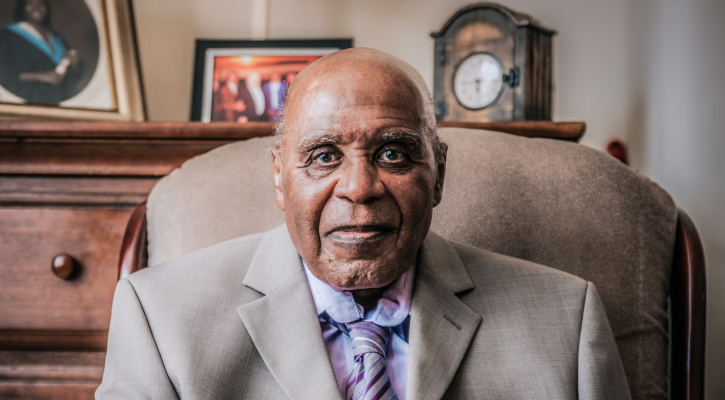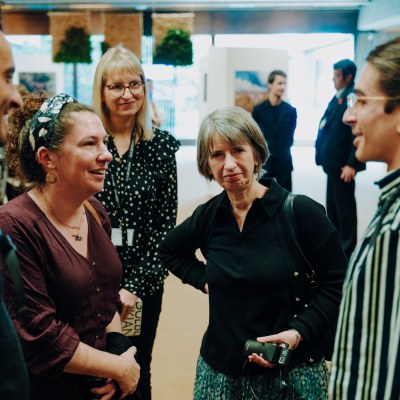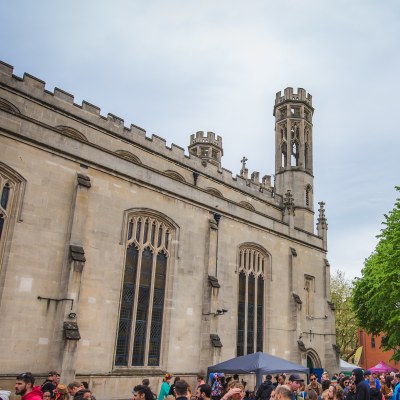Remembering Paul Stephenson

Paul Stephenson - Image Credit: Khali Ackford
Sir Paul Stephenson has left a profound legacy that reverberates across recent decades.
Few individuals have been so widely regarded across their lifetime as Civil Rights activist Sir Paul Stephenson. Paul is best known for his leadership of the Bristol Bus Boycott. As some of you may know a colour bar was in operation across Britain, including Bristol. The colour bar restricted Black and Asian migrants' access to housing, employment and services. Unlike apartheid South Africa, Britain’s discrimination was not codified in law. Instead, in the absence of legislation preventing discrimination, landlords, employers, service providers of all kinds were at liberty to deny services to whomever they chose. 'No Blacks, No Dogs no Irish' typified who was vilified. Regardless of skill levels migrants were relegated to the least desirable jobs, that is if they could find employment at all. The colour bar in housing meant that migrants were concentrated in the less desirable parts of Britain’s towns and cities.
Sir Paul, a former service man, had moved to Bristol to take up a post as youth worker when he joined a group of West Indian activists who wanted to bring attention to the colour bar in Bristol. They chose The Bristol Omnibus Bus Company as their cause Celebre.
The Bus Company’s refusal to employ Black drivers was widely known in the city. It was all the more glaring given the numbers of Black staff employed elsewhere in the country across the transport sector. Inspired by the US civil rights movement Paul and fellow activists Roy Hackett, Owen Henry, Audrey Evans, Guy Bailey, led a boycott of the Bristol Omnibus company from April-August 1963. The boycott was supported by students, liberal Christians, and of course members of the Bristol’s Black community. Crucially, the boycott attracted the attention of the national press at a time when Britain was entering a new relationship with the Commonwealth. Moving away from its dominant role, Britain wanted to signal it could be the head of a multilateral Commonwealth of Nations. News of racism in Britain was then a stain on Britain’s reputation among the newly independent nations.
A charismatic, handsome, orator and to all intents and purposes an Englishman, Paul was the perfect spokesmen for the movement. Under pressure from the Wilson Government, the national Trade Unions the Bristol Bus Company capitulated two months after the start of the boycott.
Various commentators argue that the boycott was an important catalyst for Britain’s first anti-discrimination act. Introduced into law in December 1965 the Act made it illegal to incite racial hatred and to refuse access to public spaces. The Act was strengthened in years to come but was at least the first step in a long legal journey towards equality.
The Bus Boycott was only the start, albeit a dramatic start to Paul’s activist career. He was once again in the public eye the following year when he was arrested and charged for causing a public nuisance. Paul had refused to leave the pub after the manager refused to serve him on account of his colour. The case went to court, an eyewitness corroborated Paul’s version of events he was acquitted, and the manager was later dismissed but as with the bus boycott, Paul’s actions exposed a persistence of racism to the wider public.
Paul used his friendship with celebrities, such as Mohammed Ali, to raise money for various youth charities He joined the Sports Council England but resigned in protest over the Thatcher Government’s refusal to criticize a British cricket tour of South Africa at a time when many in the sporting and entertainment world actively boycotted the apartheid regime.
Despite his national profile Paul continued his grassroots activism. Amongst many other roles he was chair of the West Indian Parents and Friends Association. He and his fellow activists were particularly concerned by the challenges facing the second generation of Black Britons. All too often, they experienced new forms of discrimination whilst also feeling marginalized from Bristol’s cultural mainstream. It was for this reason that members of the Association took on the management of the Trinity Centre.
Trinity had been purchased from the Church by a previous community organization in 1977. During this period Trinity offered a range of vocational courses, artistic development and an entertainment space. Despite its popularity, Trinity faced financial hardship and went into receivership in 1984. Owned by the Council, the building underwent a substantial overhaul and was put out to tender in 1991.
The tender was competitive but Paul’s influence as well as that of West Indian Parents and Friends was key to securing the building’s future as a community venue.
Trinity owes a debt of gratitude to Paul Stephenson for its continued existence. But wider than Trinity, Bristol and the country at large is indebted to his example of unflinching public service.
Tribute written by Dr Edson Burton








